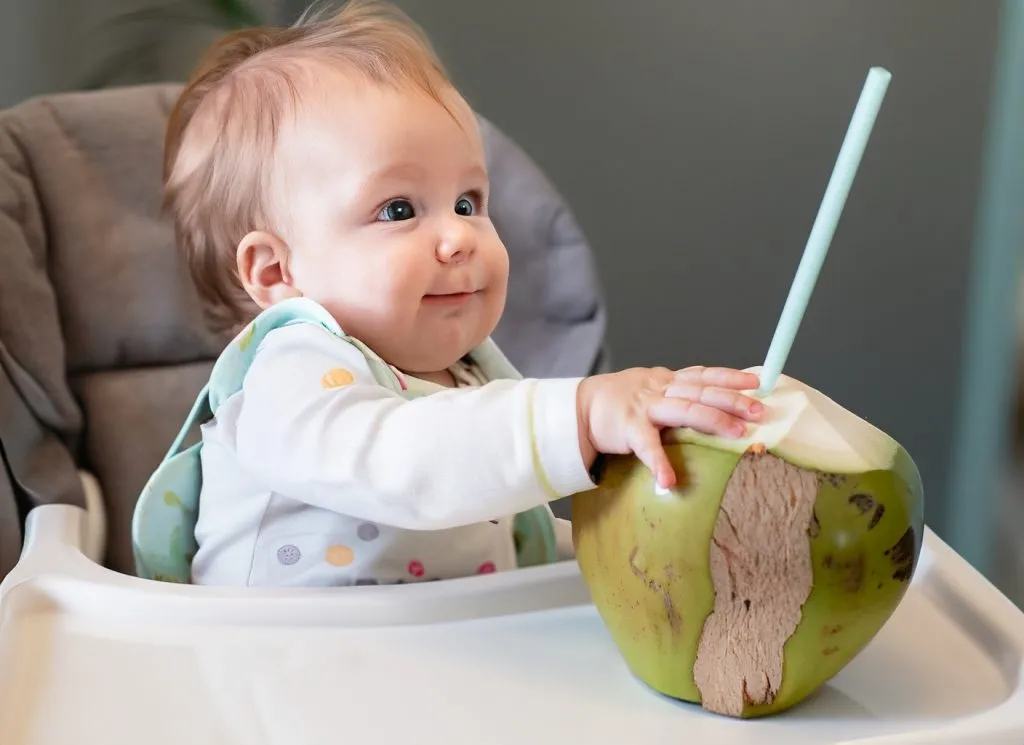Is Coconut Water Safe for Babies with a Coconut Allergy?
No, if your baby has a coconut allergy, it’s essential to avoid giving them coconut water or any coconut-derived products.
The allure of coconut water as a refreshing and nutrient-rich drink can be tempting for many parents, especially given its touted health benefits. However, if your baby has been diagnosed with a coconut allergy, introducing them to coconut water could pose significant health risks.
The Reality of Coconut Allergy in Babies
Coconut allergies, although less prevalent compared to other food allergies, can have serious implications. When a baby’s immune system wrongly identifies certain proteins in coconuts as threats, it can lead to allergic reactions. Recognizing the causes and symptoms of these reactions is crucial for the child’s safety.
Allergic Reactions:
An allergy to coconut signifies that the baby’s immune system is mounting a response against proteins found specifically in coconuts. The manifestations of this immune reaction can be diverse:
- Immediate Symptoms: Shortly after coconut consumption, babies might develop hives, redness, or swelling around the mouth or elsewhere.
- Digestive Symptoms: Some babies might experience vomiting, diarrhea, or abdominal discomfort.
- Severe Reactions: In extreme cases, the allergic reaction can escalate to anaphylaxis, a life-threatening condition that requires immediate medical attention. Symptoms include difficulty breathing, a sudden drop in blood pressure, and loss of consciousness.
Rare but Real:
Though many children can consume coconut products without any adverse reactions, coconut allergies, though rare, are very real. It’s essential to note that the severity of reactions can differ from one individual to another. Some might experience a mild itchiness, while others could have more severe responses.
Whole Coconut Concern:
The proteins responsible for triggering allergic reactions are found throughout the coconut. This means that virtually all parts of the coconut, including its water, flesh, and oil, have the potential to initiate an allergic response.
- Coconut Derivatives: Apart from the direct products like coconut water or flesh, many processed items might contain coconut derivatives. These can also be potential allergens for those with a coconut allergy.
- Hidden Sources: Coconut can sometimes be an ingredient in products where you might not expect it, such as in certain cosmetics, soaps, or other skincare products.
Can Babies Have Coconut Water?
For babies without a known allergy, coconut water can be introduced, with caution, after six months of age, and ideally under the guidance of a pediatrician. However, for babies with an allergy, it’s crucial to keep them away from coconut products entirely.
The Underlying Concern with Coconuts
Notably, while many children can safely consume coconut products, adverse reactions, albeit rare, do exist. The intensity can vary among individuals, with some experiencing minor irritation and others undergoing intense reactions. What’s crucial to realize is that the entire coconut, be it its water, flesh, or oil, contains the proteins that might set off these allergic responses.
Beware of Hidden Coconut Sources
Beyond the obvious sources like coconut water or meat, various processed products might harbor coconut derivatives, which could be allergenic. Additionally, unsuspecting items such as certain cosmetics or skincare products might also contain coconut ingredients. It’s advisable to refer to resources like the American Academy of Pediatrics for a deeper dive into coconut allergies in children.
So, Should You Give Coconut Water to Your Baby?
For those without a documented allergy, introducing coconut water post the age of six months, preferably under a pediatrician’s watch, is usually safe. But, if an allergy is known, absolute abstinence from coconut products is paramount.
Guarding Against Allergic Reactions
Protecting an allergic baby demands vigilance:
- Label Scrutiny: Many products, spanning from foods to skincare, can contain coconut derivatives. Regularly peruse ingredient lists and stay informed about alternative names for coconut, such as ‘cocos nucifera’.
- Pediatrician Partnership: Always keep your child’s doctor in the loop. Their tailored advice can be invaluable, especially when introducing new foods.
- Avoid Cross-Contamination: Trivial coconut traces can provoke reactions. Be meticulous about kitchen hygiene, cautious when dining out, and ensure caregivers are well-informed about the allergy.
- Sibling Awareness: Older siblings should be briefed about the allergy to prevent unintentional sharing of potentially harmful snacks.
- Preparedness Is Key: Accidents can happen. Always have a plan in place – from medication to emergency contacts.
Conclusion:
The health and safety of your child always come first. If your baby has a coconut allergy, it’s best to err on the side of caution and avoid coconut water, along with any other coconut-derived products. Always stay informed, read product labels diligently, and keep open communication with your child’s healthcare provider.
Disclaimer: The content provided is for informational purposes only and is not a substitute for professional medical advice, diagnosis, or treatment. Always consult with a qualified healthcare professional regarding any medical conditions or concerns.

